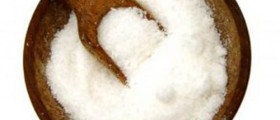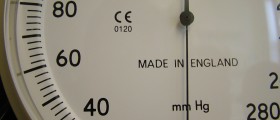
Blood pressure
The blood pressure is the pressure that the blood creates on the walls of the blood vessels. When this pressure is too high, it is referred as high blood pressure or hypertension. On the other hand, when the blood pressure is low, it is called hypotension. The blood pressure is measured by two numbers; the upper number measures the pressure of the blood on the walls of the blood vessels when the heart beats and it is called systolic blood pressure, while the lower number represents diastolic blood pressure and it refers to the blood pressure when the heart is not beating, when it is relaxed. The normal blood pressure in healthy people is when the systolic pressure is 120 mmHg, while the diastolic blood pressure is 80 mm Hg.
When systolic blood pressure is above 140 mm Hg and the diastolic remains normal, then the person suffers from the isolated systolic hypertension. Although many doctors tend to state that high diastolic pressure is more serious than high systolic pressure, one should know that isolated systolic hypertension might lead to serious conditions, such as the kidney problems and heart disorders, as well as the stroke.
Symptoms and causes of isolated systolic hypertension
The isolated systolic hypertension is a condition that typically occurs in elderly population above 50 years of age. The most common symptoms are headaches and heart palpitations, but furthermore, those people who suffer from this condition may experience different heart sounds when the hearts beats. High systolic blood pressure that is persistent may cause frequent urination, as well as vision abnormalities.
This condition rarely affects children and the risk of developing this condition rises with the age. When ones ages, there are certain changes that happen with heart functioning, as well as with the circulation of the blood through the blood vessels. Another cause of the isolated systolic hypertension may be diabetes, as well as obesity. The high systolic blood pressure may also be caused by stiffening of the arteries, which makes the blood difficult to flow. Therefore, the heart must pump the blood harder and thus cause isolated systolic hypertension.
Treatment of isolated systolic hypertension
Since isolated systolic hypertension may cause several complications to some organs, it is important to take it seriously and keep it under control. To treat high systolic blood pressure, the doctor prescribes certain medications, but the person who suffers from this condition must make certain changes in her/his lifestyle, such as losing the body weight and avoiding salty foods.

















Your thoughts on this
Loading...